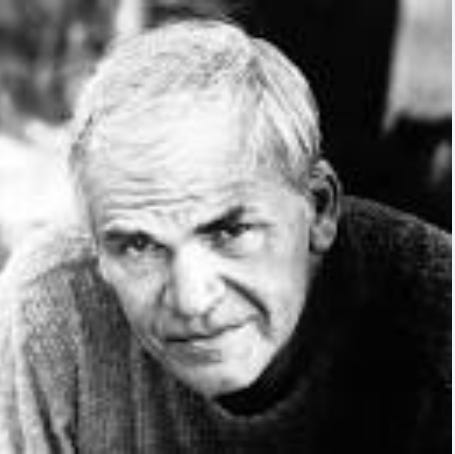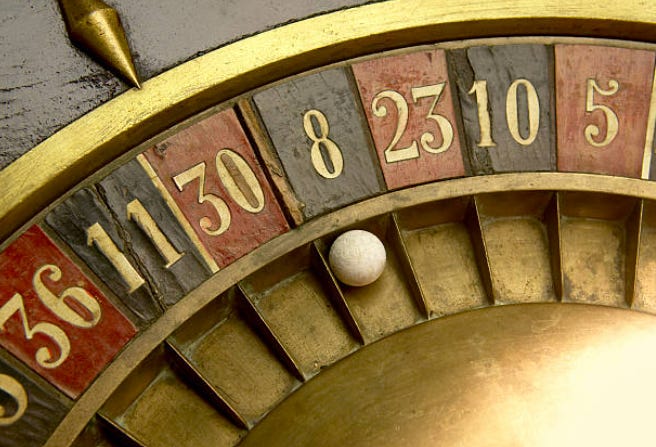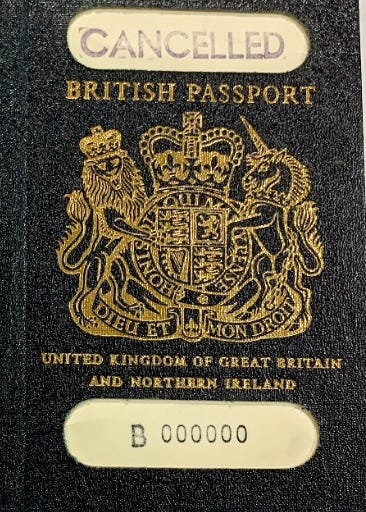“When the heart speaks, the mind finds it indecent to object.”
― Milan Kundera, The Unbearable Lightness of Being
Other authors have written better novels about sex. Others have written better novels about politics. But no one has written about the politics of sex and the sex of politics better than Milan Kundera. They were the same thing for him. You get fucked one way or another.
His mind found it indecent to object.
The Unbearable Lightness of Being was published in English in 1984. I had a copy of it in my briefcase, freshly minted from Foyles in Charing Cross Road, when I walked out of Tower Records in 1986 with my personal and patriotic pride in tatters.
No, not in tatters. It had been shredded, trashed, pulverized, crushed, mangled, splintered, fractured, demolished, sphinctered, shat-upon and disposed of in a stinking wheelie-bin that men in orange hazmat suits were pushing with twenty-foot barge poles towards a mobile nuclear waste unit that was holding up traffic all the way back to the North Circular.
I stood in the sun. Some questions began to shape themselves out of the shadows of my shame.
Is it ever okay to be racist towards racists, even in parody? Even in jest was it legitimate to insult all white South Africans racially and collectively using racist tropes in the most terribly racist way? Was it justifiable to tar all white South Africans with the same black brush for the sake of underlining a legitimately angry political statement against racism and discrimination? Wasn’t it just as racist to phrase that last question the way I did?
I stumbled down Piccadilly towards Trafalgar Square where workers in white tunics had surrounded Nelson’s Column with a sturdy scaffold of shining steel and polished oak. From their steaming buckets of detergents and their frenzied scrubbing with industrial titanium-coated brushes I gathered they had been commissioned to cleanse the last remaining shit-stains of history from the head of shoulders of the hero of Trafalgar.
It occurred to me it would be a lot simpler to erase the historical record laid down in Hansard by his contemporary, Charles James Fox, who described Nelson’s dealings with the prisoners who surrendered to England’s most famous Admiral after the Battle of Naples as, “...sullied and violated by ferocious murderers, and by cruelties of all kinds so abominable, that the heart trembles to hear the description…”
Perhaps I was reading too much into it. It could just have been the guano. Yes, and anyway, point me to a country that hasn’t done abominable things for its greater glory? Or to a great historical figure who didn’t have feet of clay with someone else’s blood under the soles of them?
It was clearly just unlucky for me that my country's atrocities were being beamed around the world in hi-def NTSC. Every morning, noon and night. Thankfully, on the other hand, they were all apparently being committed by black terrorists inspired by another black terrorist called Nelson Mandela who had been in jail these past 24 years.
I vaguely remembered him. Wasn’t he the guy we got a glimpse of from the playing field of old Merchiston when they drove him down Commercial Road in the back of a police-van back in 1962? When the crowds came out to scream and cheer?
Television speaks louder than the written word. And statues speak more loudly and persuasively than either of them. When Nelson’s Column was constructed in the early 1840’s it cost the equivalent of five million pounds. Who could argue with that? Only the literate few.
Apparently there were good Nelsons and bad Nelsons. I wasn’t sure what to think.
And there was South Africa House in pride of place on the south-eastern corner of the square. I was ashamed to feel so proud.
But it reminded me to inspect my wardrobe for tell-tale signs of my South Africaness. Just in case some anti-apartheid hooligans or someone from Spitting Image looked at me sideways. No Springbok emblems on my cap or my collars? Check. No guinea-fowl feathers sticking jauntily out of a breast pocket? Check. No sticks of droëwors hanging from the loops of my faux-Versace belt? Oh, just this little piece I forgot. Hmm, yummy.
A souvenir stall across the street was selling Union Jack beanies, Paddington Bears and Ray-Bans. I bought a pair of the latter and one of the former. No one would recognise me as a South African as long as I didn’t open my mouth to speak. I hadn’t been in England long enough to know that only a tourist would initiate a conversation with a stranger in a public space.
It was only much later, after more than a decade of living in London, that I understood the English aversion to speaking to someone they hadn’t been formally introduced to had nothing to do with xenophobia, racism or even the pathological embarrassment they might have to endure by engaging in a conversation with someone who turned out to be from a different class.
It was and is, rather, their atavistic dread of infection from unknown others that appears to go all the way back to the Black Death. Their horror persisted into the Victorian era when serial recidivists were transferred from the mainland’s crowded prisons to decommissioned warships anchored in the mud off Woolwich. These dark, damp and verminous jails were known as “hulks”, the contemporary versions of which have now been revived to house verminous migrant families seeking to escape persecution, rape, torture and worse from the very countries the British Empire, despite its entirely honorable intentions, somehow failed to civilize.
Even if I had no reason to be nervous, I had plenty of reasons to be ashamed. I was a white South African who had just been called a talentless murderer who smelled like a baboon. I knew I hadn’t killed anyone and I hoped I didn't smell like a baboon. But I had carried a rifle for the SADF and had spent three years writing propaganda for the official mouthpiece of the apartheid government. I was complicit whether I liked it or not. And it hurt.
On the other hand, Margaret Thatcher was in power. If push came to shove, she would be pleased that I was white.
I pulled my Union Jack beanie down to rest along the top of the frames of my new Ray-Bans so that no one would see the furrows of self-loathing frowns on my forehead.
I told myself to get a British grip. It was my father’s voice. I told myself I was more English than South African. It was my mother’s voice.
I felt, let’s just say, conflicted. I loathed apartheid but I loved South Africa. Or I loved the idea of South Africa. It was my home, after all. And I knew next to nothing about England apart from the cultural scraps I had borrowed or imbibed, consciously or unconsciously, from the Victorians, the Edwardians and the black-and-white WW2 films I had grown up with that so dramatically and vividly brought to life the Churchillian trope of a doughty little nation that had single-handedly defeated the worse than nasty Nazis.
My maternal grandfather had been wounded in the Battle of the Somme. My uncle had died in an Italian POW camp after being captured in Tobruk. Could I not feel proud of my English, liberal, South African, British heritage? Couldn’t I be the nice white South African who was the exception to the rule?
Please?
And it wasn’t as if everyone in Tower Records had turned as one to look at me with their teeth bared in loathing and disgust.
I got a grip. I determined to walk proudly, briskly and Britishly in the direction of Westminster Bridge hoping to see a sight so touching in its majesty it would remind my dull soul that, despite its coarse accent and its cultural indigence, at least its heart was in the right place.
By the time I reached Whitehall I had begun to separate the thorny issues of my national pride and my cultural pride from the bristling issues of my personal pride. It was difficult. How much personal pride would I have left if I could excise the national parts of it? How much did my pride in my family and in my personal achievements, as limited as they were to date, account for the pride I could not disassociate from the cultural, racial and political history that had blessed me with the opportunities I had so taken for granted to get where I was? Or was it the other way around? And which parts of my pride could I then truly call my own?
The summer sky was clouding over when I passed the Churchill War Rooms. It struck me then that pride was the strangest of all emotions, and the most contradictory of all character traits.
The odd thing about it is that it’s possible to be less proud of the things you’ve accomplished through the effort of your personal skills, your principles, your sense of purpose, your desires and your imagination than of the things you never lifted a figure to achieve — your eye colour, your skin colour, your hair colour, the shape of your chin, your lips, your ears, your nose and your mouth; your family, your nationality, your language, your culture and all the aspirations, attitudes, tastes, preferences and prejudices that came with the package.
It was odder still that the people who seemed to put the least effort into achieving things through the individual effort of their skills, principles, desires and imaginations appeared to be the ones who were most proud of the things they had less than nothing to do with accruing for themselves.
Then we are told that pride comes before a fall; that pride is the deadliest of all the deadly sins, and that pride itself, as Robert Musil so brilliantly observed, may have nothing to be proud about.
But pride in your country, your culture, your language and the colour of your skin, when the time and the place of your birth was allocated to you merely by the whirling lottery of lust, luck, longitude and latitude, is judged to be admirable, praiseworthy and supremely commendable. And no more so, in respect of your patriotic pride, than after they’ve scraped the warm remains of your body and bones off the wet and muddy walls of a trench in Flanders, an Angolan donga or out of a sewer in Baghdad.
Which suggests that pride of affiliation is the exception to the rule — that the warm, glowing feeling of self-esteem and fulfillment you derive from belonging to a family, a friendship group, a gang, a team, a band, a fandom, a regiment, a town, a city, a province or a nation is both the reward for belonging and the reason for continuing to belong. It needs no justification because it justifies itself.
Which is well and good if you’re proud of something in your life besides your blue, green or red passport, your football team or your undeserved inheritances of sex, race, culture and provenance.
It’s when your pride of affiliation, your pride of allegiance and your pride in belonging is all you have to take pride in that it begins to feed on itself — to eat itself because it has nothing of any other substance to feed upon. It becomes autophagous, toxic and dangerous. And the most virulent, the most carcinogenic and the vilest version of it metastasizes into nationalism.
Yes, as Samuel Johnson famously observed, patriotism is indeed the last refuge of the scoundrel. But nationalism is a hall of mirrors in which all of the meanest, the most selfish, the most chauvinistic and the most despicable aspects of our character are reflected back at us as a shimmeringly meretricious display of intoxicating virtues.
Instead of licking your wounds when your country loses face, a test match or a war, you want to savour the sweet blood that flows from them. You develop a taste for it; you devour its fetid flesh and its broken bones to feed your righteous anger at the injustice of it. The bloodlust of your wounded national pride craves to exact a bloody price.
Everyone around you, guilty or innocent, must feel your hurt. You double down. You vote for the liars, the cynics, the thieves and the monsters who know exactly how to exploit your rage. You vote for the party that most brazenly appropriates the colours of your flag. You vote for Pinochet, for Vorster, for Franco, for Batista, for Brexit. Now the rest of them will share the pain of your wounded pride.
It wasn't by accident that the government of apartheid was called the National Party. Nor that Nazi was an abbreviation of the National Socialist German Workers' Party. Nor that the far right of the far right wing of the far right Conservative Party in the UK announced themselves on the national stage at a conference in May this year under the banner of National Conservatism.
Take any economic or political philosophy from the far right to the far left and you’ll probably find a grain or two or reason in it. Add the merest pinch of nationalism to it and it immediately becomes a toxic brew of poison and hate. It was the BR in Brexit that made the reckless, self-harming stupidity of it sound so admirable.
Nationalist are not patriots. They are people who hate people who are not like themselves. They are people who having nothing to be proud of apart from the accident of not being born in someone else’s skin.
What was a patriot then? I turned to Kundera.
In large countries patriotism is different: they are buoyed by their glory, their importance, their universal mission. The Czechs loved their country not because it was glorious but because it was unknown; not because it was big but because it was small and in constant danger. Their patriotism was an enormous compassion for their country.
Milan Kundera
I sat on a bench under a London plane tree and looked at the shimmering, silver surface of the Thames making its sluggish grey-green way towards the Estuary.
It was where that ship of Joseph Conrad’s got becalmed. And where his alter-author Marlowe narrated the story of Heart of Darkness.
The unbearable lightness of not belonging became unbearably heavy. This was Orwell’s forbidden thought, the omertà he could not bring himself to utter: To despise your homeland is to despise the larger part of who you feel yourself to be.
Thirty-four years later, inspired by the murder of George Floyd and the pandemic of national othering that was sweeping through post-Brexit Britain, I wrote a song about it. It was as much about the history of white supremacist atrocities as it was about the faith I had lost in my race, my roots and both of my homelands.
Heart of Darkness
Lyrics by Gordon Torr. Arranged & performed by Tim Gerard. Video concept, filming & editing by Taylor Torr.
Harmonica outro melody - The Old Folks at Home
Original lyrics by Stephen Foster, 1851
Way down upon de Swanee Ribber,
Far, far away,
Dere's wha my heart is turning ebber,
Dere's wha de old folks stay.
All up and down de whole creation
Sadly I roam,
Still longing for de old plantation,
And for de old folks at home.
Chorus
All de world am sad and dreary,
Eb-rywhere I roam;
Oh, darkeys, how my heart grows weary,
Far from de old folks at home!









